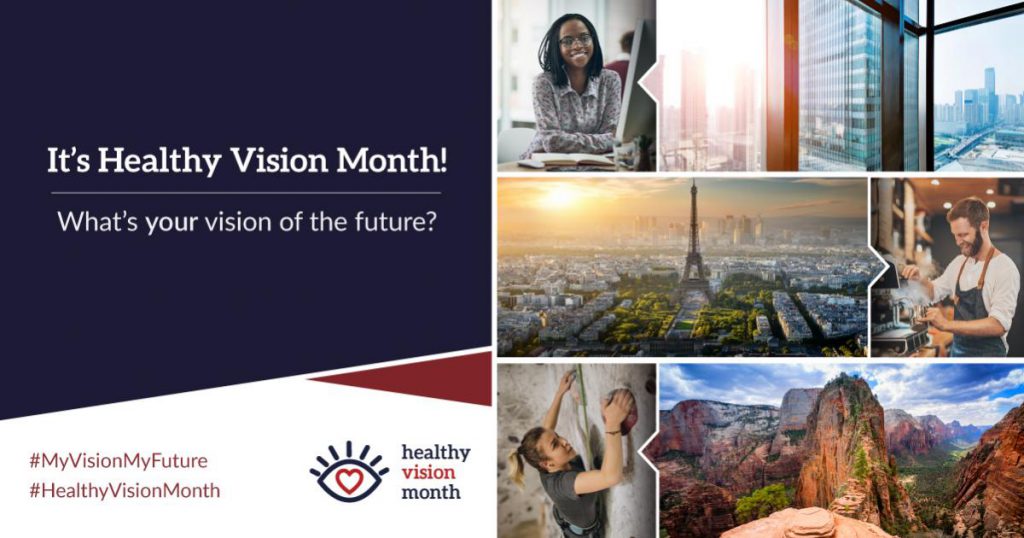It’s second nature to schedule your yearly physical, or routine dentist appointment, but what about your eye health? When was your last comprehensive eye exam? A yearly eye exam is just as important as any other routine appointments you make. This May, during Healthy Vision Month, NEI and Prevent Blindness urge you to take control of your vision, and decide what you want to see in the future. Learning how to protect your eyes is the first step in preserving eye health.

Most vision problems are in fact preventable. Take a look at some everyday tips in order to take the first step in preserving your eye health:
- Wear sunglasses (even on cloudy days!)
Sure, sunglasses are fashionable, but more importantly, they protect your eyes from the sun’s ultraviolet (UV) rays and help keep your vision sharp. - Maintain a well-balanced, healthy diet
It is true, carrots are good for your eyes! Diets rich in a variety of fruits and vegetables — especially dark leafy greens— is important for keeping your eyes healthy. - Get plenty of physical activity
Regular exercise comes with a lot of great benefits. It can boost your mood, reduce stress, help you stay at a healthy weight — and protect you from serious eye diseases! - Give your eyes a rest
Do your eyes ever feel achy at the end of the day? If you spend a lot of time at the computer or staring at your phone, you may forget to blink — and that can tire out your eyes. - Protect your eyes
About 2,000 people in the United States get a serious work-related eye injury every day. Eye protection is so important both in and out of work.
Healthy vision is much more important than just what meets the eye. Healthy, or, not so healthy, vision can be a big indicator in other areas of systemic health. The eye functions as a window to the body and its health. By viewing the different tissues of the eye, eye care providers are able to see early warning signs of many serious, chronic diseases such as diabetes, high cholesterol, cancers, rheumatoid arthritis and more. The eye is in fact the only place in the body where a doctor can have an unobstructed view of blood vessels, nerves and connecting tissue, without surgery. Because the eye has the same microscopic tissue as our other major organs and is an important part of our larger nervous system, abnormalities spotted in the eye may signal the same changes in other parts of the body.
Healthy Vision Month is aimed to encourage Americans to make eye health a priority and inform them of the steps they can take to protect their vision. Most importantly, getting a comprehensive eye exam. Your optometrist or ophthalmologist can review your personal and family history, assess your vision, and evaluate the internal and external anatomy of your eyes to rule in or out any problems. If an issue is detected, treatment can be initiated as soon as possible, which can improve outcomes and slow or reverse the underlying disease process. Even if you don’t have any vision or eye problems, you should still schedule a comprehensive exam. An optomap screening is an excellent addition to any eye exam, offering a comprehensive view of the retina and to gain essential information about ocular health. optomap is the only proven, clinically-validated, ultra-widefield retinal image that can capture 82% or 200⁰ of the retina. Visit our website prior to scheduling your next eye exam to locate an optomap provider near you.